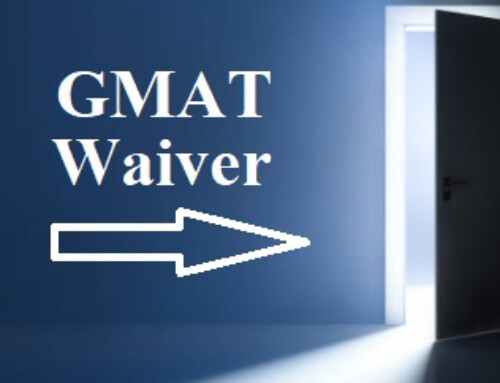Guest post by Brett Ethridge, founder of ‘Dominate the GRE’.
I hear it all the time from my prospective students: Brett, they say, I’ve been studying for the GRE for a while now and I feel stuck. I just can’t seem to break through and get the score I need. I know I’m not stupid, but I just can’t quite figure this thing out. Can you help me?
Have you ever felt that way? Are you looking for a breakthrough on the GRE? Or perhaps you’re new to this whole GRE thing and you’re wondering what separates those who get high scores from those who don’t.
Let me reassure you right off the bat: You’re not stupid. It’s not intelligence (or lack thereof) that ultimately determines your GRE score. I’m confident from years of teaching the GRE to students from all parts of the globe and from different academic backgrounds that if you’ve graduated high school (yes, you heard me right — high school, not even college) and can tie your shoes while chewing gum, you can learn the underlying content tested on the GRE. You’re capable of memorizing some key vocabulary words. I can teach you how to find the area of a right triangle. You can learn how to find the roots of a quadratic equation (it’s not as hard as you might think!).
The GRE is a beatable test. If you invest the time, you can learn the underlying content tested on the GRE. Believe that.
So if it’s not innate intelligence that determines your GRE outcome, and if it’s not some sort of secret super-hard question types that you need to learn to dominate the GRE, then what is it? Let’s actually look at it from the other side of the coin. Here are the top four reason why I believe some people don’t succeed on the GRE. If you take these to heart and commit to avoiding these mistakes, you’ll be in a much better position to dominate the GRE!
- You’re not clear on WHY you’re taking the GRE in the first place.
All personal development authors and coaches of elite human performance are clear on one thing: Your why for doing something is significantly more important than the how in terms of predicting your ultimate success. Preparing for the GRE is a large undertaking. There is a significant time investment required. There’s a financial component in terms of the cost of the exam itself plus whatever GRE prep course you choose to take. Sacrifices have to be made. So the question is, why do you want to go to graduate or business school in the first place? Is your drive strong enough to compel you to put in the required effort at the expense of other more enjoyable uses of your time and resources? If the answer is “no,” your chances for success on the GRE will go down significantly.
I learned this first-hand when I started studying for the LSAT years ago, thinking that I wanted to follow in my dad’s footsteps and go to law school. I shelled out over a thousand dollars for a prep course and sacrificed my Tuesday nights every week for several months sitting in a classroom trying to learn how to beat the LSAT (this was before online prep courses were more the norm). But despite being magna cum laude from Duke University with a decent brain in my head, an interesting thing happened: My practice test scores were only slightly above average and they weren’t improving from week to week. I couldn’t figure our why. And then about halfway through the course it dawned on me. Deep down in my gut, I knew I didn’t want to go to law school. It was something I was doing because I thought I should, not because I actually wanted to. As a result, I wasn’t putting in the work. I barely studied between classes, and my heart simply wasn’t in it. It showed in my results.
Contrast that with my GRE experience. Once I decided that international business and political economy was where my passions were, preparing for the GRE was like a breath of fresh air. I had no trouble putting in the effort to study the way I needed to, and the result was a GRE score in the 98th percentile and a hefty scholarship to the graduate program of my choice.
So are you clear on your own why for going to grad school? For more on the importance of knowing your why and tips on how to connect with it for success on the GRE, click HERE.
- You’re inconsistent in your preparation.
If I were to ask you which of the following exercise plans would get you in better shape, what would you say?
Plan 1: Exercise 30 minutes per day, 5 days per week.
Plan 2: Exercise 3 hours one day per week.
Obviously Plan 1 is the better option — even though it ends up being fewer total hours of exercise than Plan 2. But consistency of effort is key. It makes all the difference.
The same is true when preparing for the GRE.
Part of being able to stay consistent with your GRE prep goes back to what we just talked about in point #1. If your WHY is clear, it’s easier to stay committed, even on days when you really don’t feel like studying (believe me, you’ll have those days!).
Another key to consistency is to plan ahead. If you work full-time, you may only be able to spend an hour per day after dinner working a few practice problems or watching a few instructional GRE videos. You might also carve out 30 minutes on your lunch break each day. Those hours add up. Commit to them and plan for them. If you’re able to put in longer chunks of study time on weekends, that’s great! But be sure to do at least a little something each day (including adding 5-10 new words to your vocabulary each day!). The cumulative effect will help with your retention and pay dividends on test day.
- You’re too traditional in your approach to certain question types.
This is a hard one for a lot of students to understand, but let me say something you may have never heard before when it comes to the GRE: The traditional way of solving a large number of GRE math questions is not the ideal approach in most cases. Your goal isn’t to make your high school algebra teacher proud. Your goal is to get right answers, and sometimes that means out-thinking the GRE test makers.
Consider a question like this:
A ball is dropped 192 inches above level ground, and after the third bounce, it rises to a height of 24 inches. If the height to which the ball rises after each bounce is always the same fraction of the height reached on its previous bounce, what is this fraction?
- 1/8
- 1/4
- 1/3
- 1/2
- 2/3
How would you solve it? I’ll give you a hint: Setting up an algebraic equation and solving for the fraction is not your best approach here. There are a handful of what I call “non-traditional GRE math strategies” that you absolutely must learn if you want to dominate the GRE. I teach one of them in detail in my free GRE session. It explains the best way to solve this particular question and also goes through several other examples as well. But the key point is, you may need to un-learn some of what you think you know about the GRE and learn new ways of attacking certain question types so that you can get more right answers in the most effective, efficient way possible. It takes some work and practice to implement, but it’s essential.
- You lack a game plan for success.
You’ve probably heard the expression, “If you fail to plan, you plan to fail.” So many students take a haphazard approach to studying for the GRE, and it’s no wonder that they get haphazard results. Hope is not a strategy. Buying a few GRE textbooks off amazon.com and doing a handful of practice problems each night is not a plan.
If you’re serious about dominating the GRE, you need a detailed, step-by-step game plan for systematically preparing for the test. There are three major components that lead to success in anything you’re trying to master: Content knowledge, Strategy, and Practice. Your preparation for the GRE needs to focus in each of those areas as well. You need to learn the underlying content tested on the GRE. There’s no getting around that. Then you need to learn some of the strategies that I alluded to in point #3 so that you can get more right answers more efficiently. And finally, you need to practice it all so that you’re confident on test day and able to apply everything you’ve learned while managing your time effectively. That means working hundreds of practice problems and taking numerous full-length computer adaptive GRE practice tests.
Anyone who has reached the highest levels of performance in any endeavor has had a coach. I’d be honored to be your GRE coach. Our comprehensive online GRE prep course provides exactly the detailed game plan I just described. But even if you’re going to try to tackle the GRE on your own, realize that a haphazard approach won’t cut it. However you do it, come up with a structured study plan. If you need help, feel free to reach out to me personally at brett@dominatethegre.com and I’ll be happy to steer you in the right direction.
Brett Ethridge is the founder of Dominate the GRE, a leading provider of GRE prep courses online and topic-specific GRE video lessons. He has taught the GRE for 10 years and loves working with students to help them achieve their highest potential. Brett is an entrepreneur, a CrossFit athlete, and an avid Duke basketball fan.



Leave A Comment